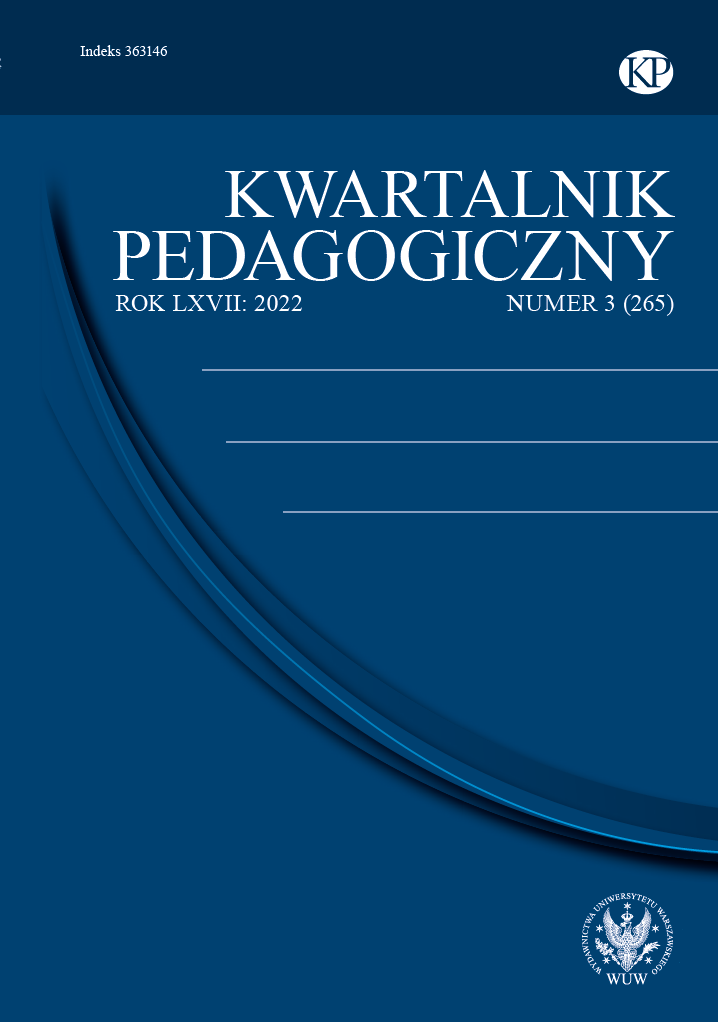Rozwijanie zdolności samodzielnego uczenia się − redefinicja myślenia o gotowości szkolnej dziecka w kontekście kulturowo-historycznej teorii Lwa S. Wygotskiego
DEVELOPING INDEPENDENT LEARNING − REDEFINING THINKING ABOUT SCHOOL IN THE CONTEXT OF LEV S. VYGOTSKY’S SOCIOCULTURAL THEORY
Author(s): Ewa Maria FilipiakSubject(s): Education, School education, Pedagogy
Published by: Wydawnictwa Uniwersytetu Warszawskiego
Keywords: school readiness; responsive learning; developing independent learning; activity learning; self-regulated learning; Lev S. Vygotsky’s theory; social situation of development
Summary/Abstract: The quality of a child’s start at school is determined by his or her level of school readiness, readiness (sensitivity) to master the basic tools of participation in culture (reading, writing, counting). School readiness procedures usually involve diagnostic tools that focus on completed developmental cycles which provide an indicator of ongoing performance. They focus on what the child already knows and what he or she can do on his or her own. The article discusses the problem of school readiness in the context of Lev S. Vygotsky’s sociocultural theory. This perspective introduces a new thread and raises new questions about the old problem of school readiness. It focuses on thinking about school readiness as not being fully developed before starting school. It involves the readiness to responsive learning, developing the ability to learn independently, self-regulation, conscious control, and the ability to follow the teacher’s instructions. Developing school readiness in a sociocultural cultural approach means developing resources and competences for independent and responsible learning. Supporting the development of readiness may also mean equipping the child with tools that allow him or her to understand the school situation, meaning making processes, building relationships with others and developing coping skills and strategies. The diagnosis of readiness understood in this way is focused on the area of the child’s Zone of Proximal Development and exploring the child’s learning potential as well as his or her readiness to follow the teacher’s instructions.
Journal: Kwartalnik Pedagogiczny
- Issue Year: 265/2022
- Issue No: 3
- Page Range: 35-52
- Page Count: 18
- Language: Polish
- Content File-PDF

